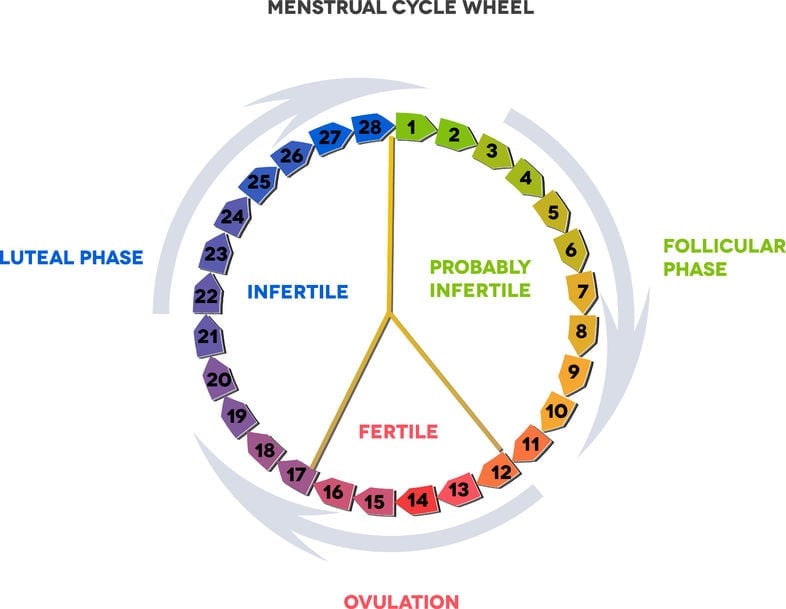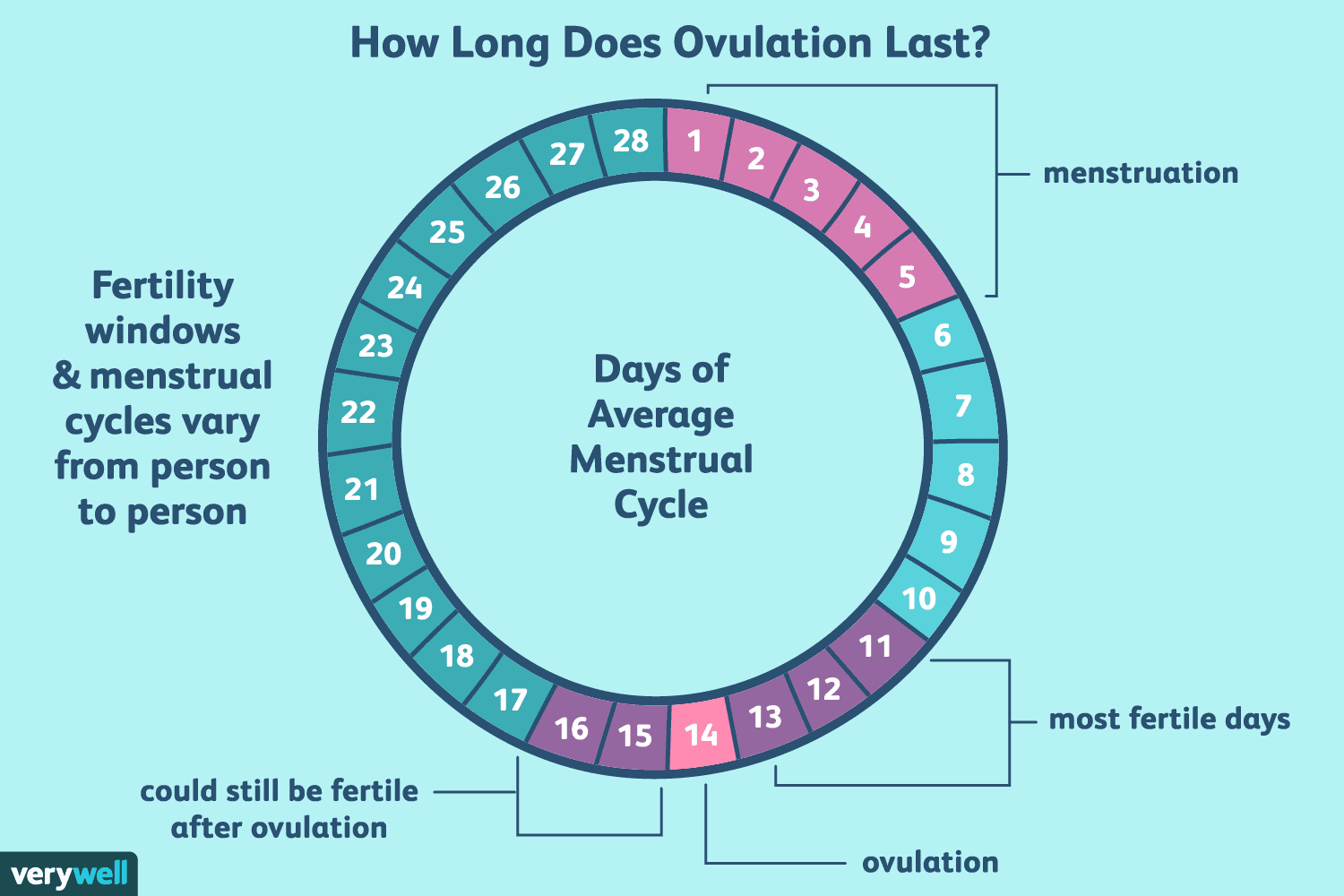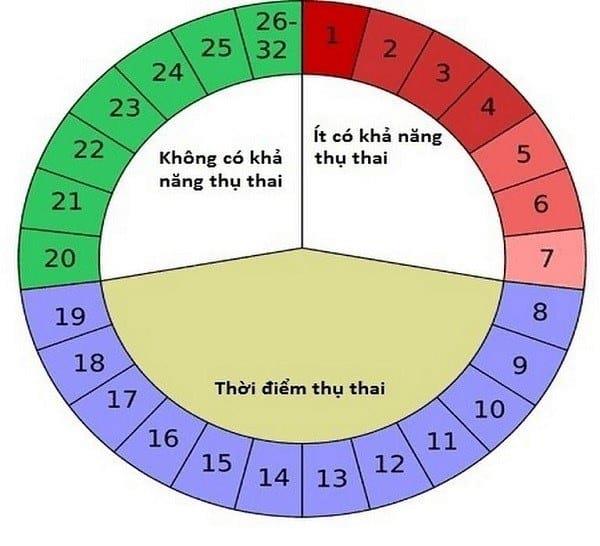Can You Get Pregnant On Your Period With Birth Control
Unfortunately, no method of birth control method is 100% effective. So if you use a condom on your period, it breaks and you are fertile directly after your period, there is still a risk of pregnancy – although this is extremely unlikely. If you are using hormonal birth control, then the monthly bleeding you may experience is not in fact a period, its called a withdrawal bleed. Since hormonal birth control works by stopping ovulation, you will not have a fertile window in the same way as with non-hormonal birth control. If youre using Natural Cycles as a birth control method – then you will know your own fertile window.
Can You Get Pregnant While On Your Period
The chances of getting pregnant while on your period are low, but pregnancy is still possible.
The answer lies in understanding the fertile window. For people who are trying to get pregnant, menstruation is not the best time to conceive. Getting pregnant depends on ovulation, which happens when an egg is released from the ovary and moves toward the uterus. The day of ovulation varies from one person to another and from cycle to cycle.
Although the chances of getting pregnant while on your period are low, there are exceptions. For example, it is possible to conceive during a period if ovulation occurs early in your cycle or if your periods last longer than five days.
The chances of becoming pregnant during menstruation are higher for people with shorter monthly cycles. Shorter cycles mean ovulation occurs early in the cycle. Because sperm can live for up to five days inside your body, having sex near the end of a period could lead to pregnancy if ovulation occurs early .
Generally, most people ovulate sometime between days 10 and 17 of their menstrual cycle. The earlier ovulation occurs, the earlier the fertile window will start. The fertile window begins five days before ovulation. If ovulation occurs on day 14 of a cycle, then the fertile window starts on day nine. But if ovulation occurs on day eight of a cycle, the fertile window begins on day three possibly in the middle of a period.
More Ways To Predict The Most Fertile Days After Period
Because a womans cycle is not always exactly 28 days and many women have irregular menstrual cycles, there are other things you can pay attention to in order to identify when you are ovulating. Things like the cervical mucus and your basal body temperature can help you tell exactly when you are ovulating, so you can get pregnant or avoid getting pregnant, whichever you are looking for.
1. Watch Cervical Mucus Changes
The consistency of the cervical mucus changes throughout the menstrual cycle. After having your period for five days, you will have about 3-4 days in which you have little cervical mucus. The moistness of the mucus increases every day so that the wettest day is about day 9 of your cycle. The mucus at this stage is easily recognizable. It should be clear, stretchy, slippery and should have the appearance of egg whites. You need this type of cervical mucus in order for the sperm to travel up into the uterus. Ovulation generally happens when you’ve had the stretchy type of mucus for about 1 to 2 days.
2. Record Your Basal Body Temperature
Before you ovulate, the temperature of your body stays about the same when you check it every morning before getting out of bed. As you near the ovulation time, there may be a dip in the basal body temperature followed by a spike in temperature after you ovulate. This spike in temperature indicates that you have just ovulated.
Note:
3. Use Ovulation Predictor Kits
4. Notice Abdominal Pain or Spotting
5. Feel Breast Tenderness
Also Check: What Is The Gestation Period Of An Elephant
Fertility In Your 20s
If you’re in your 20s now, it is a good time to try to conceive. You are still in the most fertile time of your life. That is not to say that women in their 20s cannot have trouble getting pregnant, but statistically speaking, it will be easier than waiting until your early 30s. About 86% of healthy, fertile women in their early 20s will conceive within one year of trying. Health risks that often come along with pregnancy are also reduced in this time. For example, a woman in her 20s has only a 5% to 10% chance of miscarriage and only a one in 1,200 chance of having a baby born with Down’s Syndrome.
Understanding Your Most Fertile Days

There are six to seven days during your menstrual cycle when you can get pregnant. This is known as your fertile period.
You are most fertile during the five days before you ovulate, the day that you ovulate, and possibly a day after you ovulate.
Sperm can live up to five days. Once released, an egg only lives for about 24 hours. This is why there are six to seven days that count as being within your most fertile time.
If you have unprotected sex on those days, you may become pregnant.
Read Also: Why Do I Have Bad Period Cramps
Options For Infertile Couples
If you are having fertility issues, your doctor can refer you to a fertility specialist, a doctor who treats infertility. The doctor will need to test both you and your partner to find out what the problem is. Depending on the problem, your doctor might recommend treatment.
- About 9 in 10 cases of infertility are treated with drugs or surgery.
Don’t delay seeing your doctor, as age also affects the success rates of these treatments.
For some couples, adoption or foster care offers a way to share their love with a child and to build a family.
How Likely Am I To Get Pregnant If I Have Sex On The Last Day Of My Period
By | Aug. 23, 2011, 4:14 p.m.
Category:
How likely am I to get pregnant by having intercourse on the last day of my period?
Its possible to get pregnant any time you have unprotected sex, regardless of what day it is in your cycle. Sperm can live in a womans reproductive tract for about six days, so its always best to use protection. Its more likely that youll get pregnant from intercourse on the last day of your period if you have a shorter menstrual cycle. Your body ovulates releases an egg from your ovaries about 14 to 16 days before your period. If your cycle is only about 22 days long, sperm that entered your vagina on the last day of your period could still be there when you ovulate.
The morning after pill is a safe and effective way to prevent pregnancy after unprotected intercourse. It can be started up to five days after unprotected intercourse.
The brands Plan B One-Step and Next Choice are available from drugstores and health centers without a prescription only. If you are interested in getting emergency contraception and are 17 or older, you can either get it directly from a Planned Parenthood health center or private health care provider for a prescription.
The best way to prevent pregnancy is by using birth control. Learn more about your birth control options.
Recommended Reading: Things That Will Delay Your Period
Fertility In Your 30s
About 63% of women in their early 30s will conceive after a year of trying, and once you conceive, the risks are higher than for women in their 20s. The rate of miscarriage for a woman in her 30s is about 20%. If you are trying to get pregnant in your 30s, it is especially important to reduce or eliminate other fertility-impacting factors, such as being over weight or under weight or smoking. It is also important to note that there are increased risks to the health of a baby born to a woman over 35 years of age. At 35, a woman’s risk of miscarriage is 25% and the risk of having a baby born with Down’s Syndrome becomes about one in 350.
How Long Should You Wait
Keeping in mind that your body is constantly changing, its pretty much impossible to ever be 100 percent safe when it comes to avoiding pregnancy, if youre having unprotected sex.
Your menstrual cycle starts on the first day of your period, and ends on the last day before your next period starts. If you have a clockwork menstrual cycle of 28 days, you are at your safest but not totally in the clear around one week or so after you ovulate. Keep in mind that sperm can continue to live in your body, so if youve had unprotected sex, this sort-of-safe window may change.
If your periods are even the slightest bit irregular, so is your fertile window. And keep in mind that your cycle can change at any time, without giving you a heads up in advance.
Read Also: Can You Masterbate While On Your Period
Can You Ovulate On Your Period
You cannot ovulate on your period. If you are trying to plan a pregnancy, the best time to conceive is on the day of ovulation and 24 hours before – so the chances of being fertile on your period are extremely low. Its also worth knowing that some women may experience spotting around ovulation – this is a much smaller amount of blood than you get with period bleeding. If you are spotting, you may be fertile.
How Often Should I Change My Pad/tampon
You should change a pad before it becomes soaked with blood. Each woman decides for herself what works best. You should change a tampon at least every 4 to 8 hours. Make sure to use the lowest absorbency tampon needed for your flow. For example, use junior or regular tampons on the lightest day of your period. Using a super absorbency tampon on your lightest days increases your risk for toxic shock syndrome . TSS is a rare but sometimes deadly disease. TSS is caused by bacteria that can produce toxins. If your body can’t fight the toxins, your immune system reacts and causes the symptoms of TSS .
Young women may be more likely to get TSS. Using any kind of tampon puts you at greater risk for TSS than using pads. The Food and Drug Administration recommends the following tips to help avoid tampon problems:
- Follow package directions for insertion.
- Choose the lowest absorbency for your flow.
- Change your tampon at least every 4 to 8 hours.
- Consider switching between pads and tampons.
- Know the warning signs of TSS .
- Don’t use tampons between periods.
If you have any of these symptoms of TSS while using tampons, take the tampon out, and contact your doctor right away:
- Sudden high fever
- Muscle aches
Also Check: When Will I Get My Next Period Calculator
While Youre On Your Period
As any woman with a calendar and a bunch of best friends will tell you, the amount of days each woman spends menstruating can vary a lot.
Your menstrual flow may start to diminish and lighten in color, or turn brown towards the end of your cycle. It feels and looks like youre still menstruating, but your body is already gearing up for your next fertile time.
If you have sex towards the end of your period, you may actually be getting close to your fertile window, especially if you have a short cycle. Lets take a look at the math.
Say you ovulate early, about six days after your period starts. You have sex on the third day of your period. The sperm have no egg to fertilize, but theyre also in no hurry to die so they hang out, doin what sperm do.
A few days later, while theyre still swimming around, you ovulate and theyre drawn to that egg like a fish to water. One gets through, and there you have it fertilization has occurred as a result of period sex.
What About Period Sex

Weve heard period sex hailed as the ultimate time for unprotected love making. Though baby making odds are slim, its not 100 percent risk-free.
During the 4 to 8 days of bleeding, youre shedding the unfertilized egg from your previous cycle. This means there isnt a new egg ready for baby making, but it doesnt mean your partners sperm wont hang out until the new egg makes its debut.
You May Like: How Long Is It Between Periods
What Can I Do To Get Pregnant
If you want to get pregnant, its a good idea to talk to your doctor. Many doctors will advise a few lifestyle changes if youre trying for a baby, such as taking a or prenatal vitamin supplements, avoiding alcohol, quitting smoking, and trying to maintain a healthy weight. You may also want to use an ovulation test to help you identify when your most fertile days are. You can see our range of ovulation tests and here to help you maximize your chances of conceiving.
Also, see our tips on .
We Offer Extensive Options For Both Infertility Treatment And Birth Control
We see patients at every stage of their lives. While some are trying to get pregnant, others may be looking for the most effective form of permanent birth control. Still, others may be entering menopause while some may be having their first gynecological exam.
At any stage of your life, we offer compassionate care that has made us a leader in the area for more than 40 years. We have locations in Chapel Hill and offer Durham gynecology and Durham obstetrics services. No matter what stage in your journey, we want to care for you throughout your life. See why our patients love our personalized approach to medicine. Schedule an appointment today.
For more than 40 years, Chapel Hill OBGYN has served women in the Triangle area, sharing the joy of little miracles and supporting them during challenges. Our board-certified physicians and certified nurse midwives bring together the personal experience and convenience of a private practice with the state-of-the-art resources found at larger organizations. To schedule an appointment, please contact us for more information.
Don’t Miss: Period One Week Late Negative Test
How Accurate Are Home Pregnancy Tests
Home pregnancy tests are quite accurate and reliable when you use them correctly. Most of the tests available at drugstores claim that they work 99 out of 100 times. Their accuracy is similar to that of a urine pregnancy test that you get in a doctors office or hospital.
- Because these tests work by detecting the presence of human chorionic gonadotropin hormone in your urine, their accuracy might be lower in early pregnancy or when you have just missed your period.
- If your pregnancy test comes out negative but you feel that you might be pregnant, repeat the test a week after the date you missed your period.
You may want to visit your healthcare provider if you are not confident about the result of your pregnancy test.
Best Time To Get Pregnant After A Period
The likelihood of becoming pregnant is highest during the two days before ovulation begins or exactly on the day of ovulation, when an egg is released from the ovary. Usually, ovulation happens about two weeks before the start of the next period. Cycles and ovulation dates vary, so you may want to try an efficient method of predicting ovulation to improve the chance of conception.
Here are four methods for predicting ovulation they can help you find the best time to get pregnant after your period:
Recommended Reading: How To Stop Diarrhea On Period
Can You Get Pregnant On The First Day Of Your Period
It’s possible though not very likely for you to get pregnant on the first day of your period, especially if you have a regular, 28-day cycle.
If you have an irregular or a shorter menstrual cycle, however, ovulation might occur much closer to day one of your period, which would cause you to get pregnant on the first day.
Factors That Affect Ovulation
Timing your ovulation can be tricky because it may not happen on the same day or same time every month. The length of your cycle may also change from month to month.
Even carefully tracking the numbers may not always help you predict ovulation. You may ovulate earlier or later than you predicted.
A change in the day of ovulation can have a number of causes, including:
- Illness
You May Like: How To Avoid Pimples During Periods Naturally
How Long Does It Take For Birth Control To Begin Working
- Some kinds of birth control start to work with the first use, such as barrier methods.
- Hormonal methods of birth control such as pills, implants, or the patch may not begin working immediately.
- Their effectiveness depends upon the time in your monthly cycle when you begin using the contraception.
- Sometimes it is recommended that women use an alternate method of contraception for the first week after beginning the pill or hormonal contraception.
Can You Have A Period And Still Be Pregnant

No once pregnancy begins, the uterine lining no longer sheds each month. Once the body starts releasing a hormone called human chorionic gonadotropin, monthly periods will stop. However, some people experience light bleeding after conception, around the same time their period would have started. This is called implantation bleeding.
If youre pregnant and experience bleeding or spotting, contact your health care provider.
Pregnancy can occur even if youre on your period. To avoid pregnancy, it is important to use contraception.
Birth control methods that can prevent pregnancy on your period include:
- Male condom
Recommended Reading: Can I Be Pregnant And Have My Period
